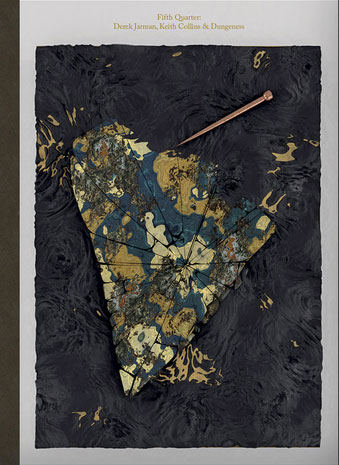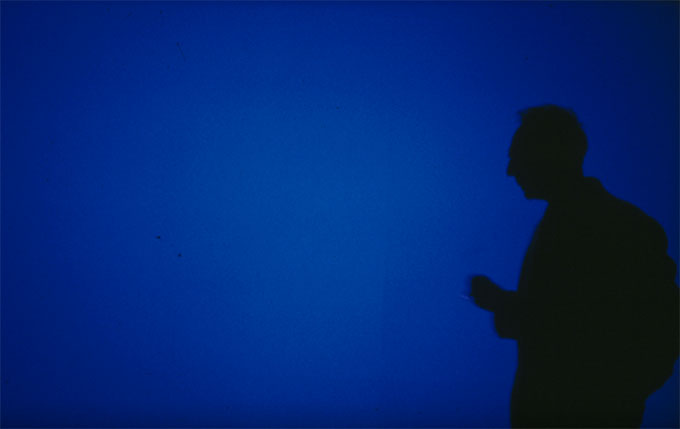
Fifth Quarter: Derek Jarman, Keith Collins & Dungeness, ed. Alexander Tucker
(110pp, Subtext/Multiverse)
Editor Alexander Tucker writes of this exquisite hardback anthology as carrying on ‘in the spirit of collaboration’, since that was what Derek Jarman did best: work with other artists, writers, actors, photographers was central to the creation of his films, exhibitions and personal life. Tucker also talks of how ‘Jarman planted many seeds throughout his life, which continue to live through the works he left behind’. This would obviously include the ongoing availability and viewing of his films, art exhibitions, and music. As I write, Blue, his final film about AIDS, death, colour, love and life, has been reinvented as a stage show, and books – including this one – continue to appear from alternative small presses.
Fifth Quarter takes as its starting point Jarman’s relationship with Keith Collins and Prospect Cottage, Jarman’s black and yellow house at Dungeness. Some of the contributions here are elegies or tributes, many are recollections or reminiscences of friendship, or film and music making, some are psychogeographical responses to the area. The book is punctuated with beautiful full colour images: Jarman’s paintings, film stills, on-set documentation (‘production polaroids’), portraits and landscapes.
Here is Collins, arms full of poppies, saluting the sky; here he is repainting John Donne’s poem on the side of Prospect Cottage. A Japanese poster for The Last of England is on page 39, Simon Fisher-Turner plucks a lute or mandolin a few pages later, and here he is – on page 47 – with Tilda Swinton. There is a reproduction of Paul Nash’s ‘Winter Sea’, a photograph of the concrete sound mirrors at Denge, and several of Jarman’s black tar and cracked glass paintings. And finally, here are the shadows of Derek Jarman against blue.

What is clear from the texts is how much Jarman meant to all of the authors here. Even when discussing sound, film soundtracks, the landscape, or Jarman’s place in the grand scheme of things, the poems and prose here are rooted in relationship, how Jarman facilitated what Cosey Fanni Tuti calls ‘an unusual ambience to work in, a disembodied place where life and death coexisted, that might put is in a mood conducive to channelling and creating something special and otherwordly.’ Fisher-Turner is more succinct: ‘God, I miss him. What a time that was.’
Few artists have combined a middle-class English sensibility with radical queerness underpinned by punk aesthetics, but Jarman did. He salvaged his parents’ nostalgic Super 8 family films and wove them into low budget feature films, reimagined Shakespeare, documented alternative histories, angrily abused his political and social oppressors, and called them out not only for their sexism and homophobia, but also for ignoring the disease that killed his friends, comrades and lovers. All that whilst reinventing film-making, and finally documenting himself dying.
Fifth Quarter is a beautiful tribute and memorial to both Jarman and his partner (and carer) Collins, and the Dungeness landscape which Paul Purgas suggests ‘speaks beyond its physical territory, towards transcendent domains’.
Rupert Loydell
